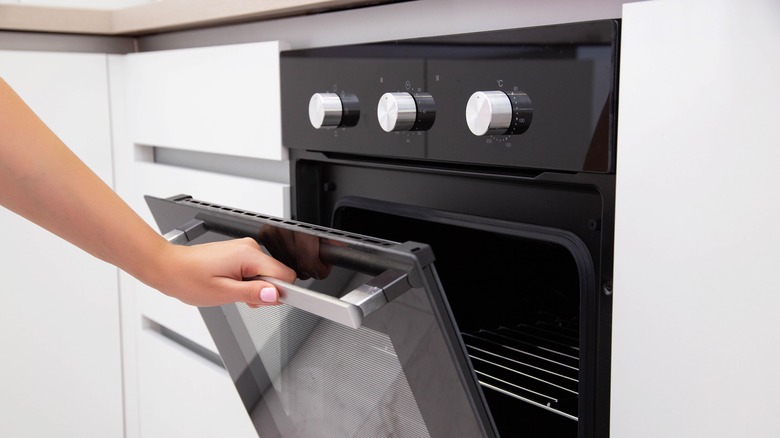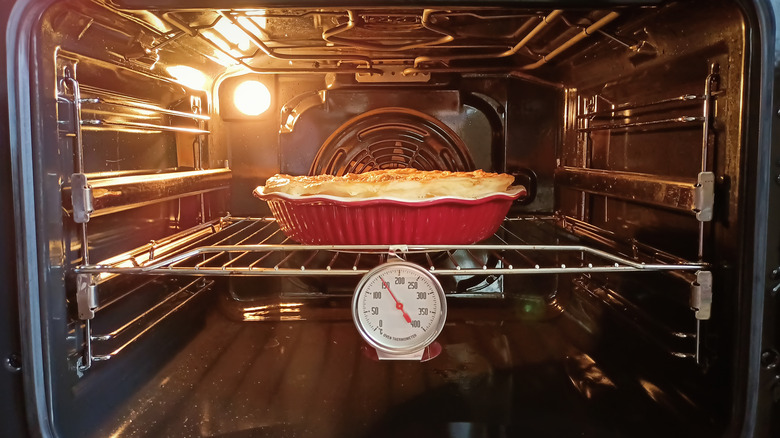The Type Of Oven Thermometer You Should Avoid At All Costs
We all know not to eat undercooked chicken or fish. However, underbaked dough can also come with a multitude of health risks. In fact, according to the Centers for Disease Control and Prevention (CDC), raw flour and eggs can still give you food poisoning from E. coli, salmonella, and more. The lesson is clear — it's important to make sure everything that goes in your oven is properly cooked before consumption. A little less clear? How to tell if your food is actually done.
To help with this, there's a wide range of oven thermometers on the market, and it's a good idea to make a small investment and get one. More often than not, the temperature inside your oven is not exactly what it's supposed to be, and it can also fluctuate while your food is baking. Thermometers can help you catch temperatures that become too hot or cold, which can be really important when making something like popovers, for example, where even a 25-degree Fahrenheit change can matter (via Bake Starters). Oven thermometers can also help you avoid overbaking foods, and let you know exactly when your oven is preheated.
However, some oven thermometers are more helpful than others. And when shopping for yours, make sure to avoid buying this type.
Stay away from dial thermometers
Dial thermometers are little devices that go inside the oven and record the temperature on a scale. While these thermometers are usually pretty cheap, they're one of the least accurate versions you can get, according to Martha Stewart. Dial thermometers are slow, hard to read, and usually get worse over time. But the most frustrating part may be that you have to read the temperature through the oven door — and if you open the door to get a closer look, you're letting about 50% of the hot air out, the Rachael Ray Show shares. For this reason, dial thermometers may actually cause your cake to collapse by letting cold air into your oven, explains Betty Crocker.
Luckily, there are a variety of more accurate thermometers you can buy. Martha Stewart, for example, recommends the ThermoWorks Square DOT, which has a probe that slips into your oven to detect the temperature every 15 minutes while leaving the magnetic digital screen outside the oven's door. You can even stick the probe into the food if you're cooking meat, ChefsTemp shares.
However, if you'd like to avoid an oven thermometer altogether, try the foil and sugar test, in which you place sugar on foil boats in the oven and note the temperature it caramelizes, according to Insider. Overall, to make sure you don't ruin your baked goods by letting cold air in, stay away from dial thermometers.

